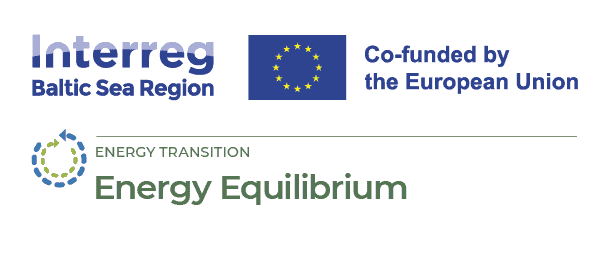
Group model building sessions have been completed successfully
22 February 2024
We are happy to announce that all three of our organised group model building sessions (GMB) have taken place and been successfully completed.
The aim of these activities was involving relevant stakeholders from various BSR countries in the modelling platform building process to foster a common understanding of relevant system factors and causal relationships and to allow for model refinement and fine-tuning. The process involved representatives from different partner municipalities, energy consultancies, public and private energy companies, engineering and social science researchers, energy professional associations representing the project target groups.
The findings from the group model building activities were gateways to refining and fine-tuning our tool, which is the main output of this project. Each session included discussions and interactive exercises to receive valuable feedback regarding platform’s functionalities, reliability, and practical applicability that was analysed and incorporated into the model making its interface as user-friendly as possible.
GROUP MODELLING SESSIONS
During the 1st GMB (19.10.2023.) initial model prototype and a practical case study was introduced. Attendees not only had the opportunity to experience the prototype firsthand but also actively shared their initial impressions.
In the 2nd GMB (28.11.2023.) we further advanced our Energy Equilibrium platform development efforts and encouraged stakeholders to contribute their expertise to enhance the functionality of the model. This event let us explore the most effective scenarios and strategies towards regional carbon neutrality.
During the 3rd GMB (18.01.2024.) we showcased the latest version of the Energy Equilibrium platform, inviting participants to test and provide valuable feedback on the newly developed page. The second part of the gathering centered around a discussion on the proposed plan for organizing platform pilots in six municipalities.
KEY TAKEAWAYS
Group model building sessions shed light on essential areas for enhancement, such as the necessity for clearer parameters, improved training materials, practical analyses of real cases, and a balanced approach to the level of detail.
Main findings of participant survey answers were:
- Stakeholders liked the platform’s flexibility with input values and sliders for customization.
- Participants had trouble regarding the difficulty in understanding specific parameters within the model, hence in the survey they emphasized the need for comprehensive training materials which could serve as a manual on platform usage.
- The demand for real-case analysis was underscored, highlighting the need for the platform to incorporate practical, real-world scenarios.
- Stakeholders varied in their preference for a higher level of detail, while others favored a simpler version.
- Target groups also emphasized the importance of allocating sufficient time for platform usage.
Most of the concerns raised by participants in the surveys were addressed and resolved to improve the final version. As a result, additional explanations were added to specific parameters, relevant training materials will be developed in WP3, included indicators were re-evaluated to ensure that the complexity of the tool’s is balanced, and primary functionalities and comprehensiveness of the Energy Equilibrium platform prototype improved.
Explore the initial version of the Energy Equilibrium platform yourself here.
This article was prepared and published by Laura Kristiāna Vičmane
© Photo by Sincerely Media on Unsplash





